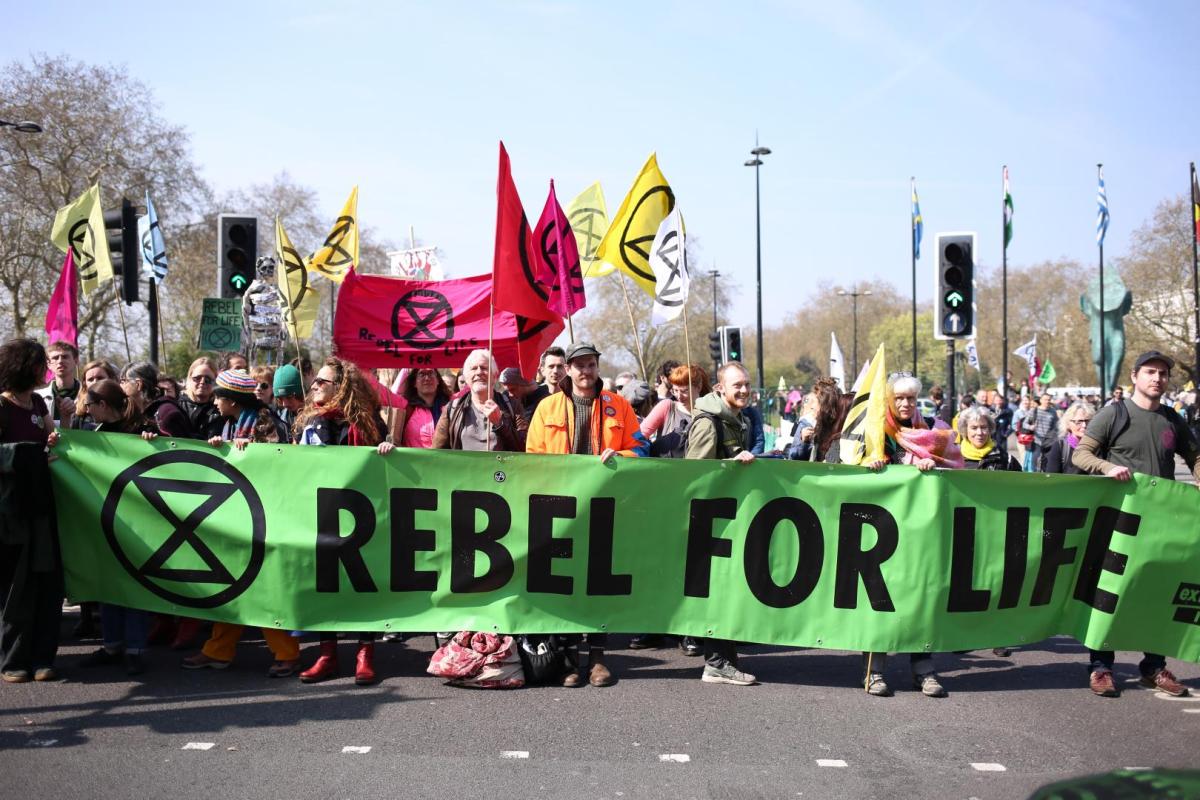The Extinction Rebellion recently gate-crashed Cannes Lions, accusing brands and marketers of hypocrisy when it comes to purpose, ignoring real chances to help change the world. So we asked our network:
Is the marketing industry doing enough when it comes to climate change?
Here's what they has to say.
YES
Mike Fairburn
General Manager, Sony Music Entertainment Middle East
It is a fundamental, global question that spans all areas of our lives. Why would this not be a fundamental question all companies ask themselves? My issue is the expectations that are placed on certain companies vs others. So, if you’re a visible multi-national, typically you will come in for incredible levels of scrutiny (at times justified and at other times not) vs the less visible mutli-nationals.
Examples of perceptions on the environmental impact in relation to the levels of industry scrutiny:
Redbull vs OTIS (biggest lift manufacturer in the world)
Tropicana vs Tetrapak
Pirelli/Dunlop vs any of the cars that sit on them!
Netflix vs Samsung TVs
Toyota vs Castrol
Khaled Ismail
VP Communications - Europe, Central Asia, Middle East and Africa - Tetra Pak
I guess the answer is ABSOLUTELY YES. Many brands are part of our lives and our lifestyles. If they drive a message home about something we have all agreed to be super imperative for our future and the future of our children, then habits will change and therefore, things will change. Paying lip service is passé.
MAYBE
Pete Markey
Chief Marketing Officer, TSB Bank
I think authenticity for brands is more important than ever today. “Do as I say not say as I do” is more relevant now, in my view, than it has ever been. Consumers are savvier than ever and can join the dots to follow the thread from a purpose statement to the reality of how a brand acts and behaves. There is simply no room for complacency.
We also know that marketers must stay in tune with emerging or changing consumer perceptions and priorities. The war on plastic is just one vitally important case in point, particularly after the excellent “Blue Planet”. And already you can see how brands like McDonald's have swiftly moved to take action on this (e.g. from plastic to paper straws) and retailers are working to make similar strides at pace (e.g. Waitrose).
So I think there is a balance here. I do see evidence of brands taking the issue of climate change seriously and taking action. The challenge is though whether the pace is fast enough and action deep enough. Whilst it’s great to see brands take action now my question is whether more should be done proactively rather than waiting for something to become “in vogue”, as with the plastic issue. Our challenge as brands must be to always be working hard to align our purpose with the reality of what we do and always keeping check on the broader role we can make in the world at large, to make the societies we live in and the planet we live on a better place.
Kevin Chesters
Partner, Harbour London
It’s tempting for us to beat ourselves up as an industry over this - especially an industry that doesn’t exactly have an inconspicuous role in conspicuous capitalism. I’m not sure that an industry whose main purpose is driving business and brand growth can ever be blameless in this sphere. I suspect though there is a lot more going on outside the rather gong-focused initiatives at Cannes. But I equally think our creative hive brain could do more, from awareness to behaviour change, in helping to address the biggest challenge of our (or any) age. So, I’d say some of the criticism is justified, but when faced with a global catastrophe that could end all life on Earth, can any industry within a capitalist structure ever “do enough?”
Remie Abdo
Head of Strategic Planning, TBWA\RAAD
Brands can be hypocritical. But not marketers.
Purpose goes beyond a clickbait tagline about ‘making the world a better place’, or a beautiful rainbow ornament in the visual assets, or an over-representation of women in the content. This is what marketers can control. When the owners of a brand tell marketers ‘everything we do affects the environment positively’, marketers translate this into a catchy brand purpose and communicate it creatively to consumers.
If someone is scamming, it’s the company, not the marketers.
Marketers wish, only wish, all the brand purpose propositions they come up with were translated through everything a brand does. But their leeway is only at an arms’ reach.
To solve this hypocrisy:
- Marketers’ eyesight internally should go beyond ‘marketing’ - too idealistic
- Agencies shouldn’t be treated like tools - same
- Agencies shouldn’t accept brand-washing briefs - if they have a say (back to the previous point)
- Awards organizations, like Cannes, shouldn’t reward hypocrisy - the most effective
- Awards organizations should reward actions vs. communication - the most incentivizing
NO
Amanda Mackenzie OBE
Chief Executive, Business in the Community
Extinction Rebellion’s brand of disruption might be ruffling feathers, but we should be embracing it. Not only are they right that there is no time to lose if we want to stop destroying our own home, they are spot on when they say that brands not doing enough to turn the tide on climate change. All too often, businesses and their leaders spend far more time talking about their environmental worries than actually doing something about them: this year, Business in the Community’s Responsible Business Tracker found that although 86% of companies in the cycle had published a grand purpose statement, only 17% had actually tried to understand what this meant for day-to-day business. Extinction rebellion is forcing all businesses to think about what they’re really doing to change the world for the better – I can only hope that the marketing world will be brave enough to step up and do its bit.
Julian Saunders
Strategist, writer and trainer
A trip down to your local supermarket shows that Extinction Rebellion are right to target some brands – especially retailers and FMCG. Granted, the 5p charge has changed behaviour when it comes to plastic bags – but big retailers were forced to do this by government. What is striking about the success of this policy is how little follow through there has been in other parts of the store.
In 10 years' time I think we will look back at the pervasive use of unnecessary packaging in and ask – how did we let this happen for so long? Retailers in particular have regular contact with citizens and so can be a force for good in important areas, such as the environment and combating obesity. Progress has stalled partly because Government has been too pre-occupied with other things to keep up the pressure.
Image credit: Extinction Rebellion



